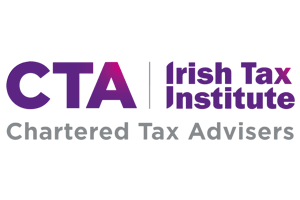The Budget this year, seeking to manage the economic effects of Covid19 and a potential ‘no deal Brexit’ on 31 December next, stands in stark contrast to the austerity Budgets after the Financial Crisis of 10 years ago. Now there are limited taxation measures and an injection of €17.75 billion into the economy in contrast to the Budgets of before seeking to raise taxes of €6 billion. The taxation measures of €270 million were on the side of money to the taxpayer rather than seeking to fund the national deficit through taxation.
This is the biggest giveaway in the history of the State resulting in a State deficit of about €21 billion with total Government borrowing of €219 billion by the end of this year but with interest rates in the negative and the State debt being managed carefully, there is good economic rationale to this approach. In contrast the 2010 deficit exceeded €50 billion and this was eliminated over the years to date. Given the loosening of restrictions by Europe to permit this extensive borrowing, it is welcome the Government has followed this approach and we hope that these measures will provide the necessary supports for lives and livelihoods.
It had been speculated in the run up to the Budget that capital taxes would shoulder the cost of these measures as there had been clear statements that income tax and the 12.5% corporate rate would not change. However this did not come to pass, possibly because the actual capital tax take is limited in comparison to other taxes to tinkering with these would not yield sufficient in light of the extensive borrowing.
Gift / Inheritance Tax (CAT)
There were no changes to the gift / inheritance tax rates or thresholds. They remain as outlined here. No changes were made to the valuable reliefs for Dwellinghouses, businesses and farms. Changes may yet be made however under Finance Act 2020.
Capital Gains Tax
A slight change to the Entrepreneur Relief is welcome in CGT terms.
Disappointingly there was no reduction to the rate for CGT. Reducing the rate has been proven before to be a way of releasing land and cash into the economy and tax into the State coffers.
Stamp Duty
There were extensions of time for transfers for special stamp duty reliefs for farming and housing -
- an existing relief has the effect of reducing the rate of stamp duty on the purchase of land for residential development from 7.5% to 2%. This relief is now extended in respect of developments where construction operations commence on or before 31 December 2022 and are completed within a period of two and a half years;
- an existing stamp duty relief (known as Consanguinity Relief) allows farmland to be transferred between family members with a 1% rate of stamp duty applying. This relief is to be continued for a further three years until 31 December 2023;
- a 1% stamp duty rate applies to the transfer of farmland in a farm consolidation transaction. This is essentially the consolidation of smaller farming units into larger units. This relief is to be continued until 31 December 2022
Full details of the Budget are available here.


